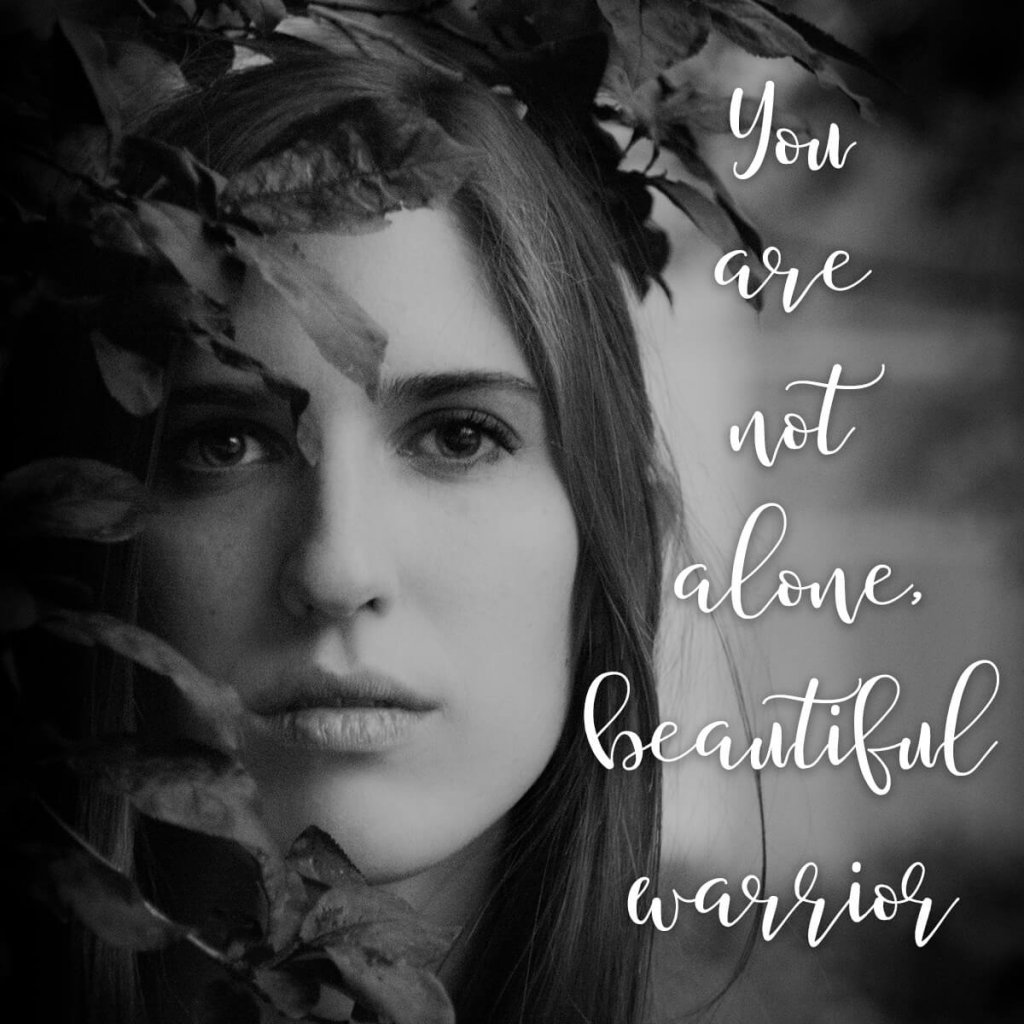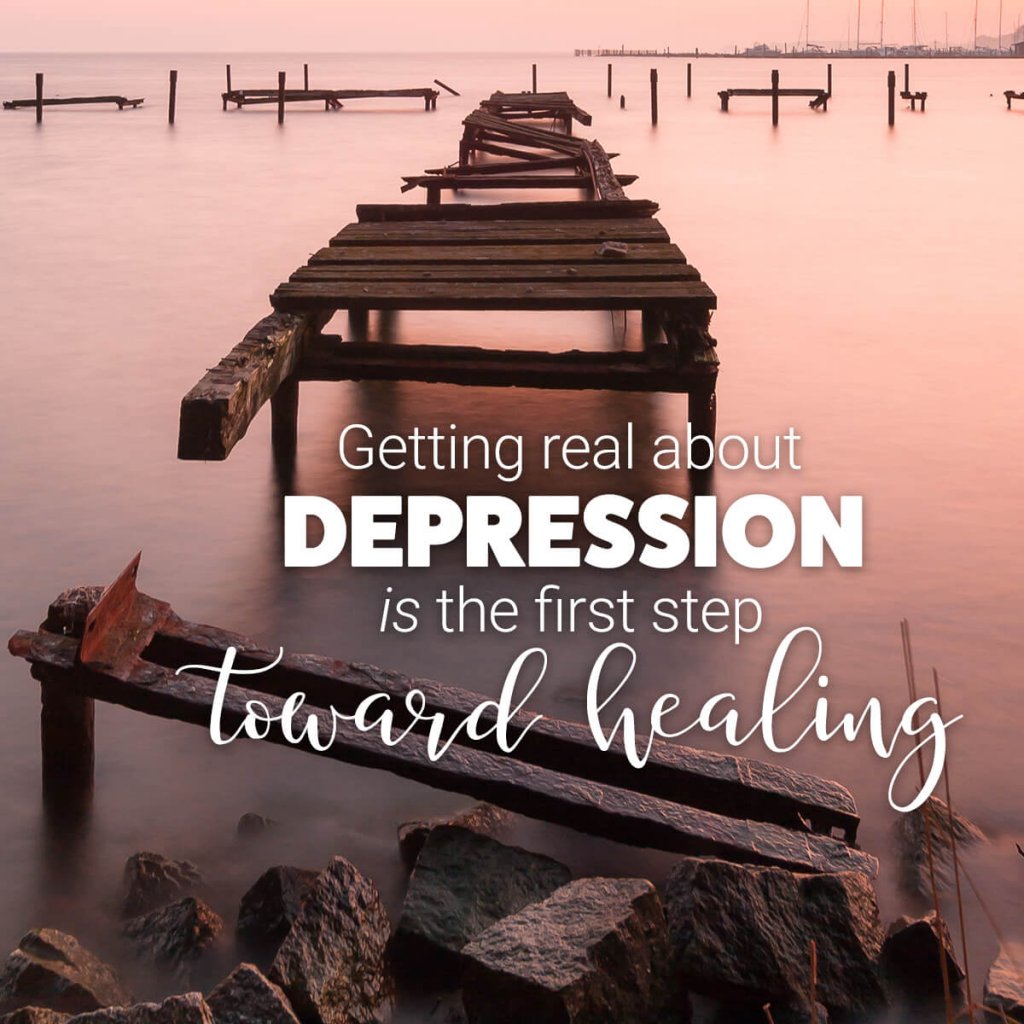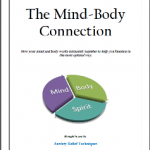How do you know if you are depressed, or not just feeling a bit down? People label health issues so quickly and unfortunately, our mind can believe what it’s told in an instant, and sometimes not correctly. So before you jump to any conclusions, and think you are suffering with anxiety or depression, there are a few types of depression people can suffer from too.

You may not have depression at all, you may just not be feeling your usual happy self, or you may be having trouble sleeping. There are so many symptoms of depression that may be taken into account. It may be hard for you to concentrate, you may feel irritable frequently. Your eating habits might have changed.
These are all the things that may lead you into wondering if you could be depressed. If you’re asking this question, it’s a sign you need to slow down and tune into your body (and mind).
Different Types of Depression
There are many different types of depression and each one is different. There are three categories of depression, and many different types within. You may have heard of major depressive disorder or clinical depression, bipolar, dysthymic disorder, psychotic depression, or seasonal affective disorder. There’s also Atypical depression, which may sometimes produce the same symptoms as a major depressive or dysthymic disorder, although it’s considered a subtype of these disorders.
What is Mild Depression?
Mild depression may cause you to feel sad, empty, or alone. Often, these feelings are accompanied by a lack of motivation. Activities you use to love perhaps don’t appeal to you anymore and you don’t know why.
You’re able to manage your schedule and keep up with basics like grocery shopping, dental appointments, and self-care activities. From the outside, nothing would appear wrong. But you don’t feel like yourself.
What is Moderate Depression?
With moderate depression, you feel sad or down frequently. Like those with mild depression, you lack motivation, but you don’t have the strength or energy to complete everyday tasks.
You might begin to put off things like cleaning your home, meal preparations, exercise, and other daily living activities. At this point, family members or friends suspect that something is troubling you. Some of them may even ask you what’s wrong.
If you’ve never experienced depression before or known someone who’s depressed, you may have difficulty articulating your feelings. This can make it hard for loved ones to understand what you’re going through.
What is Clinical Depression?
Clinical depression is sometimes referred to as major depression. With clinical depression, you feel filled with a sense of hopelessness and despair. These feelings are so intense that you have trouble functioning. Even simple tasks like grooming and bathing may seem too overwhelming.
You may have difficulty sleeping. Some people with depression sleep for longer than usual and have trouble getting up to start their day. Others may experience insomnia and find it’s hard to sleep for more than an hour or two at a time.
What is Situational Depression?
In some cases of depression, the underlying cause is a stressful situation in your life. Perhaps there’s been a death in the family, you’ve been diagnosed with a terrible illness, or you’ve lost a beloved pet.
Depression can strike during a major loss or even when your life is going along fine. However, that doesn’t mean you can’t seek help if you feel you need it. Reach out to a physician or nurse you trust and share how you’re feeling.
What Can Depression Look Like?
As I said, depression can take many forms. Sometimes, it can be so well-hidden that even your close family members and supportive friends don’t recognize it. You may not realize it either, which is why you’re here reading this article. You may simply think you’re going through a rough patch or you could dismiss it as just being a part of your life.

Here are some scenarios you might relate to:
- Are You Trying To Be Superwoman?
Jackie was a busy mother with three kids. She worked part-time and she was active on school committees. She was involved in charities and loved helping others.
But every night, she went home and cried herself to sleep. She didn’t know why she felt so overwhelmed and she felt guilty for being sad when her life was so fulfilling. She was part of a faith community and worried that if she asked for help, she would be viewed as weak.
- Are You Struggling Emotionally and Don’t Know Why?
Elizabeth was a high-powered attorney. She and her husband struggled with infertility for years before she gave birth to a healthy baby boy. In the days following his birth, she felt alone and disconnected.
She had spent years hoping for a baby and now that her son was here, she had trouble feeling anything. She described that time in her life as looking at a snow globe. She could see the joy that her friends and family felt. But she just felt numb, like an outsider in her own life.
- Are You The Life of The Party?
Kate was an editor at a women’s magazine. She was single but she had built a large community of friends that felt like family. She always knew where the best parties and restaurants were. She was constantly on the go and friends often joked that she was the “Energizer Bunny” of their group.
But Kate was hiding a secret. She was binge drinking, consuming so much alcohol that she would often black out. She’d come to in the morning with no idea how she got home or who was lying next to her. If she was asked about her lifestyle, she dismissed it as a result of being carefree and single.
Yes or No?
It can be hard to acknowledge that you’re depressed or simply realize your just feeling sad for a short time.
- Are you like Jackie, feeling guilty because you have a good life?
- Like Elizabeth, you may not be feeling anything, only numbness?
- Or like Kate, you feel you’ve got things under control, but you haven’t really?
Acknowledging depression is the first step on your journey towards healing and wholeness.
Affiliate Disclosure
My website contains affiliate links, which means if you purchase any products mentioned in my articles, I may receive a commission. If you do, thank you!






Speak Your Mind